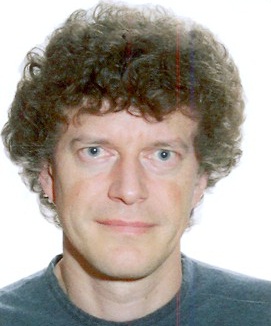 |
SERGE
VERLINDE is Professor of
French for Specific Purposes (Business French, Legal French) and
Director of the Leuven Language Institute at the University of Leuven,
Belgium. His main research interests are corpus linguistics,
pedagogical lexicography and CALL (Computer-assisted language
learning). He
is the co-author of the 'Dictionnaire
d'apprentissage du
français des affaires'
(DAFA - Paris: Didier). Recently,
he has
developed web applications for learning and teaching French vocabulary:
the 'Base
lexicale du
français' and 'Alfalex'
(http://ilt.kuleuven.be/blf).
He is currently working on online reading, translating and writing
assistants for Dutch and French.
|
Lexicographers'
'have-tos' in the electronic dictionary age
The
reference in the
title to the article by Gilles-Maurice de Schryver
(Lexicographers'
dreams in the electronic dictionary age,
2003) speaks
for itself. In the abstract to this article, de Schryver states that
"achieving the wildest of those electronic-dictionary vistas has the
potential to result in reference works beyond all recognition. This
potential, alas, remains to be realised". Nearly 10 years on, it is
useful to investigate which technical and content-related innovations
we can reasonably expect to find in a modern electronic dictionary,
with a particular focus on the access to lexicographic description and
the interaction between user and dictionary.
In principle, given the current state of technology, the sky could /
should be the limit. However, as shown in a recent article by Pastor
and Alcina (2010) on search techniques in electronic dictionaries, this
is by no means always the case: users continue to encounter unforeseen
problems, even in simple searches.
If we start from the premise that electronic dictionaries should be as
accessible as possible, it follows that, on the one hand, they should
be designed to meet a number of strict criteria. The findings reported
by Bank (2010), for instance, showed that principles such as
user-friendliness and usability are crucial. They may even be more
crucial than efforts to meet the users' supposed needs or to provide
greater customization. On the other hand, the integration of lexical
description in other (didactic) applications offers an excellent
opportunity for dictionaries to play a more prominent role again.
The implementation of these principles in an electronic dictionary is
illustrated by a number of practical examples.
References
C. Bank. 2010. Die Usability von Online-Wörterbüchern
und elektronischen Sprachportalen. Magisterarbeit. Universität
Hildesheim.
G.-M. de Schryver. 2003. Lexicographers' Dreams in the Electronic
Dictionary Age. International
Journal of
Lexicography 16.2. 143-199.
V. Pastor & A. Alcina. Search Techniques in Electronic
Dictionaries: A Classification for Translators. International Journal
of Lexicography 23.3. 307-354.
|
|



